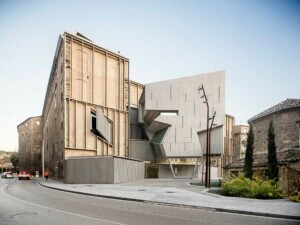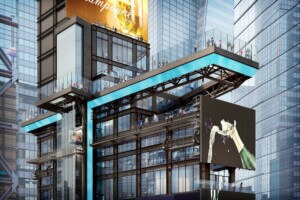In New York City new ideas to address the housing crisis are always circulating: a plan from the Department of Housing Preservation and Development (HPD) will pay homeowners to build ADUs and many offices are slated for a residential conversion. Now, a former Hilton Hotel near JFK Airport will house low-income and formerly homeless residents.
The JFK Hilton Hotel in South Jamaica, Queens opened in 1988. It closed its sliding glass doors for good earlier this year as the 350-key hotel readies for its next life: the new Baisley Pond Park Residences. The first project of New York’s Housing Our Neighbors with Dignity Act (HONDA) program, the former hotel will permanently house low-income and formerly homeless individuals across 318 apartments. The project was designed by Aufgang Architects and developed by Slate and community development nonprofit RiseBoro.
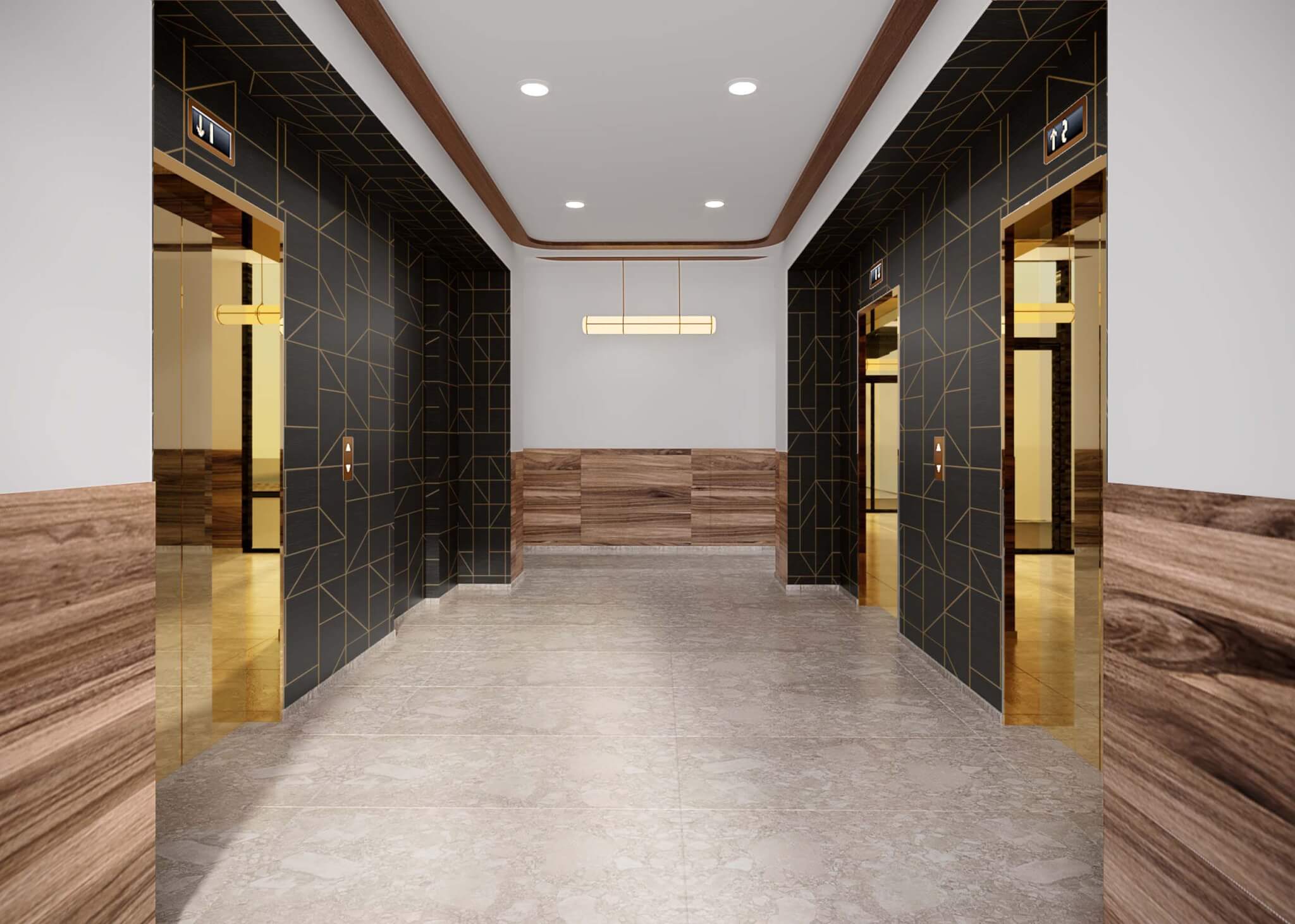
The pandemic and subsequent halting of travel plans left many hotels like the Hilton Hotel in South Jamaica at full vacancy. This, coupled with rising housing costs, gave way to ideas for converting the buildings to residential use—a platform of Mayor Eric Adams’s mayoral campaign. Throughout COVID, shuttered hotels across the city, including in Midtown, served as homeless shelters, still leaving many to seek more permanent, and affordable, housing.
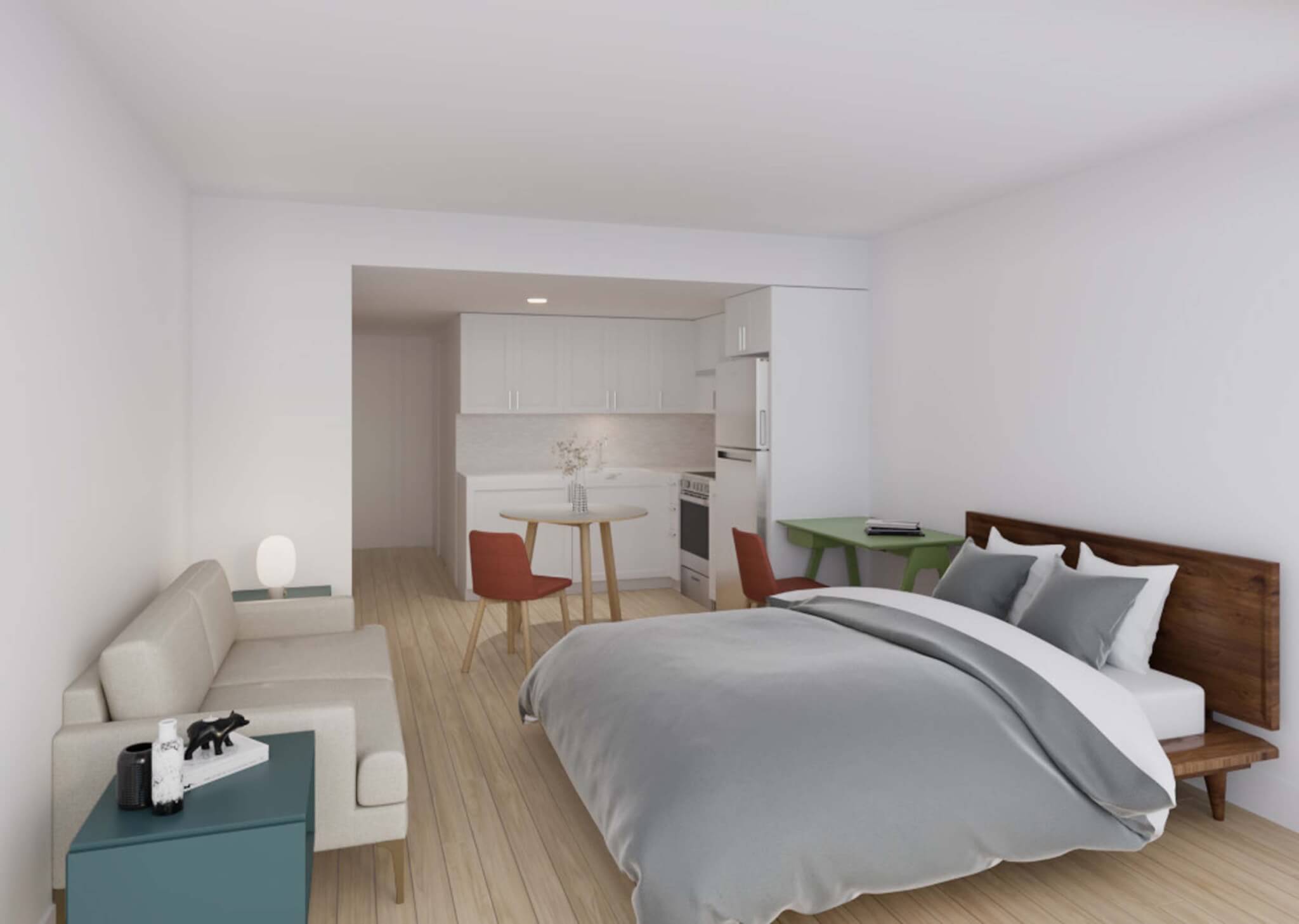
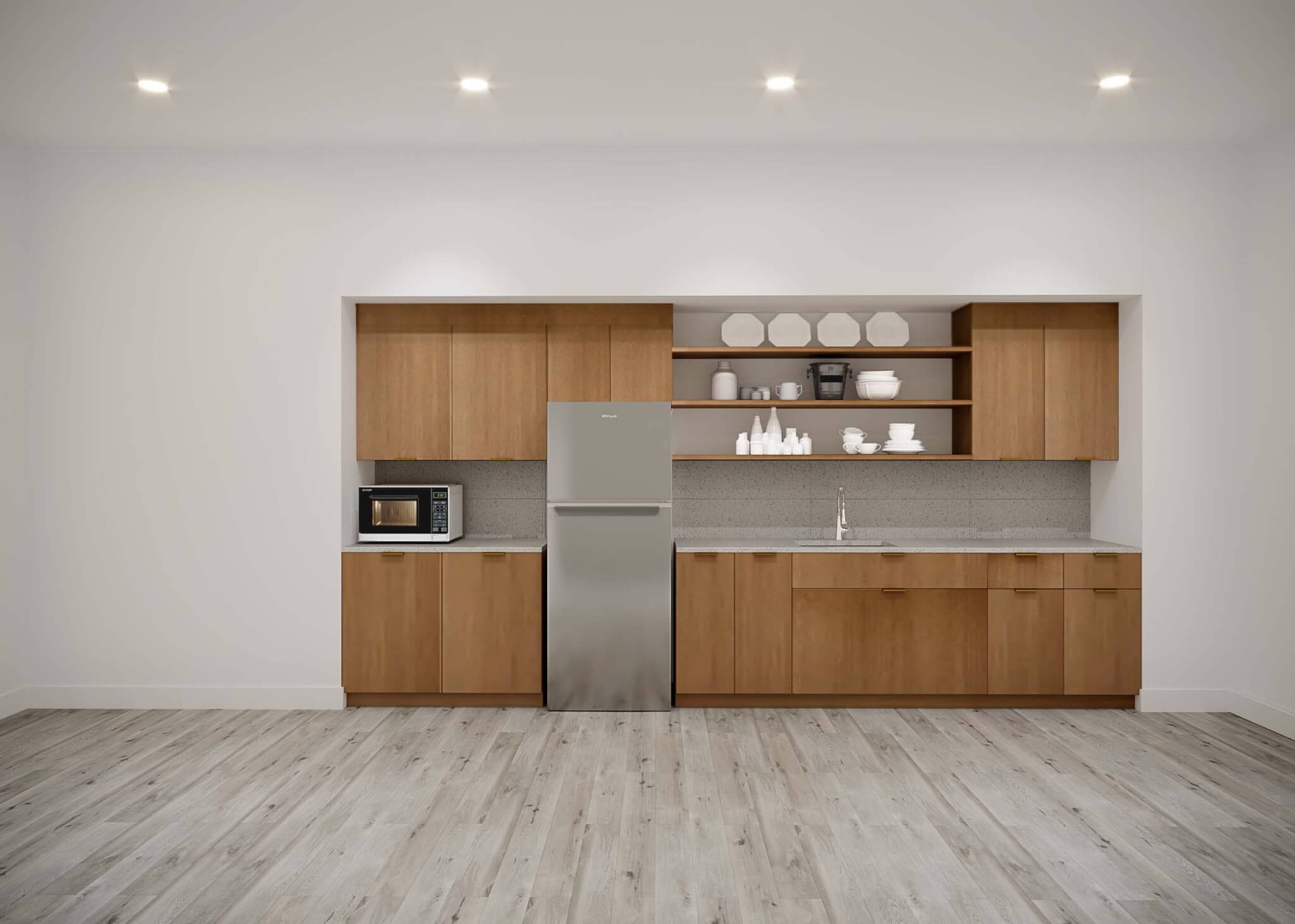
“Advancing this plan to turn a vacant hotel into more than 300 new, affordable homes is a sign that we can think outside of the box and take advantage of the opportunities in front of us,” said New York City Mayor Eric Adams.
Each of the units—available in studio, one- and two-bedroom configurations—will have full kitchens and ADA-compliant bathrooms. The building will offer residents community rooms to hang out in, as well as a gym and laundry room. Landscape architecture firm OSD has designed a greenhouse space where residents can take part in gardening and other recreational activities. The hotel kitchen will serve as a Meal on Wheels facility supporting the larger community as well.
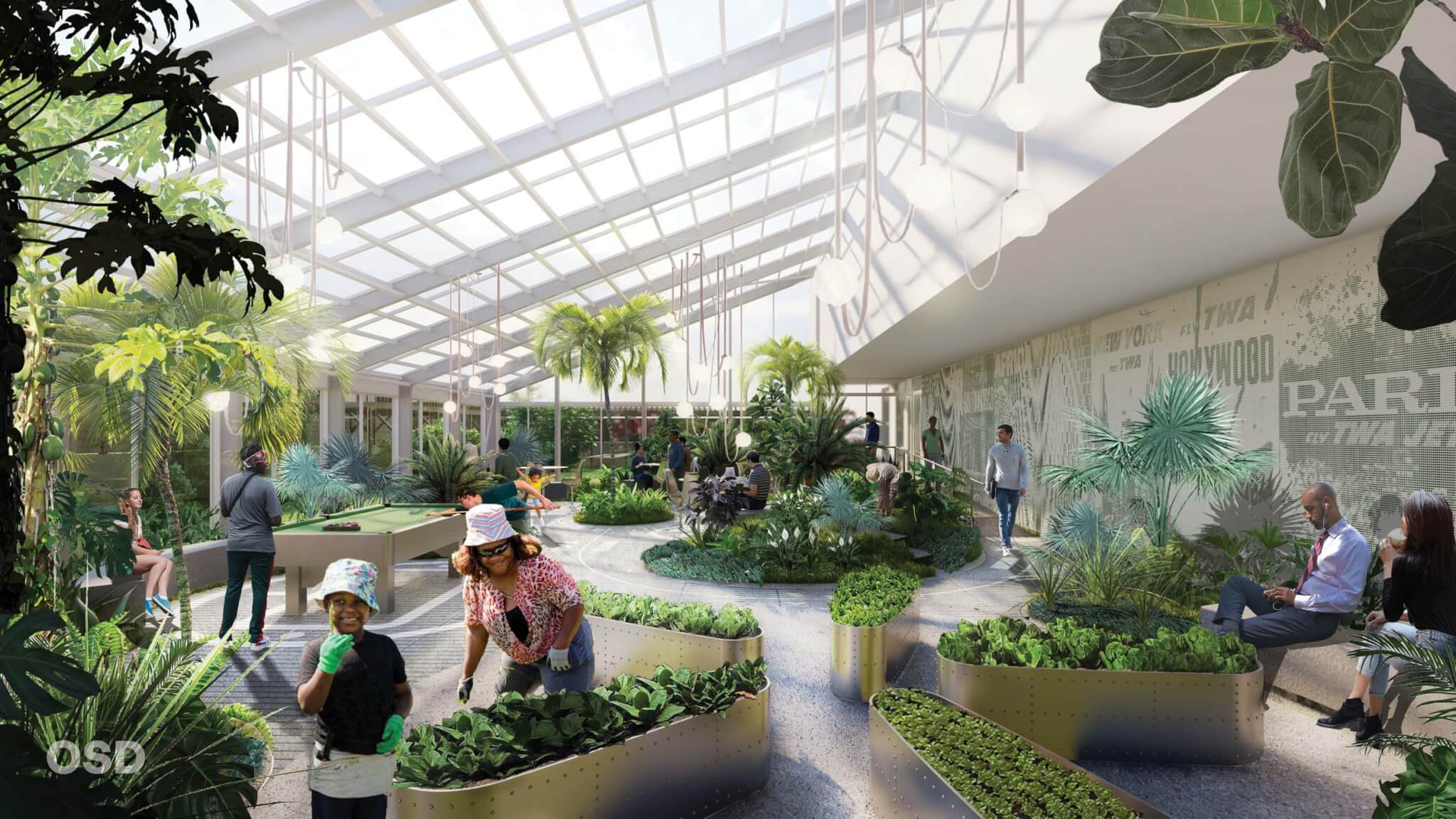
Hotels lend themselves nicely to residential conversions, given their main entry points, long corridors, and individual guest rooms. For Baisley Pond Park Residences, changes to internal walls were minimal and as a result construction will complete in just 21 months. Slate has said it plans to replace all major building and mechanical systems of the building. A new all-electric heating and cooling system will reduce emissions. Other sustainable improvements include the installation of rooftop solar panels.
Renderings shared of the new residences show a typical corridor and the anticipated appearance of the units. Elevator lobbies feature luxe patterns and finishes and a portion of the entry area has been transformed into a mail room.
When residents move in, RiseBoro Community Partnership will stay involved to manage the housing complex, while also providing services for residents, notably for residents who were formerly homeless.
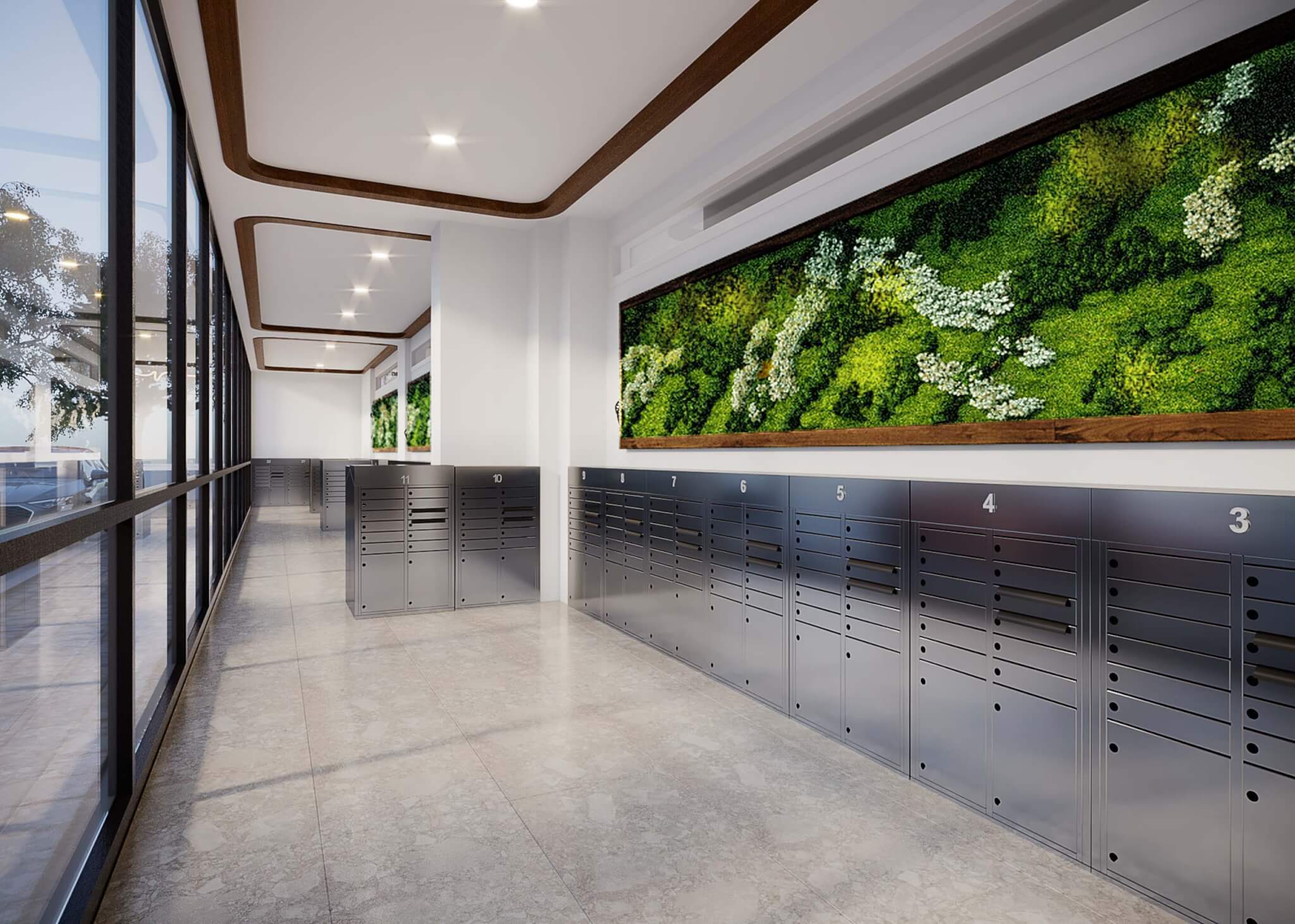
The project development costs hover at $167 million. Funding has come from a variety of sources, among this $48 million from the HONDA program and a $50 million loan from the NYC Housing Development Corporation.
Apartment rents will range from $784 for a studio to $1,493 for a two-bedroom.








